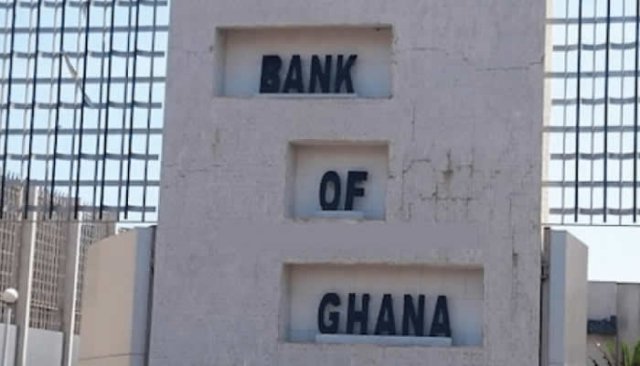Provisional data being scrutinised by the Bank of Ghana (BoG) indicates that the revocation of licences of 386 microfinance and microcredit companies will save nearly 1.2 million depositors.
The BoG revoked the licences of 347 insolvent microfinance and 39 insolvent microcredit companies, saying the institutions continue to pose risk to the entire financial system.
According to the regulator, the decision to revoke the licences was pursuant to section 123 (1) of the Banks and Specialised Deposit-Taking Institutions Act, 2016 (Act 930), which requires the Bank of Ghana to revoke the licence of a bank or Specialised Deposit-taking Institution (SDI), where the Bank of Ghana determines that the institution is insolvent or is likely to become insolvent within the next 60 days.
The BoG assured the public of its continued commitment to protecting depositors’ funds and promoting the stability of the financial system.
Mr Joseph Kofi Amoa-Awuah, Head of Other Financial Institutions Supervision Department of BoG, told The Finder that total deposits involved is close to GH¢1 billion.
554 Licensed microfinance and microcredit companies
The 554 licensed microfinance and microcredit companies by the regulator before the shutdown comprises 484 microfinance companies and 70 microcredit companies.
168 Microfinance and microcredit companies solvent
With the revocation of the licences, only 168 out of 554 microfinance and microcredit institutions remain in operation.
137 Microfinance, 31 microcredit companies solvent
The 168 solvent companies are made up of 137 microfinance companies and 31 microcredit companies.
192 Insolvent but operating, 155 ceased operations
According to the central bank, 192 of the microfinance companies were insolvent but operating while another 155 had been insolvent and ceased operations on their own.
Microcredit companies: 29 insolvent, 10 closed down
Similarly, of the 39 microcredit companies shutdown, 29 were insolvent but operational while 10 others suffered insolvency long ago and had closed down their operations on their own.
31 Microcredit companies solvent
This means that only 31 microcredit companies remain in operation.
GH₵900m to salvage depositors’ funds
To salvage depositors’ funds, Mr Amoa-Awuah said government has made available GH₵900 million to enable the Receiver pay depositors after their claims are validated, in line with the hierarchy of creditor claims set out under Act 930.
He explained that other creditors of the failed institutions will be settled by the Receiver upon validation of their claims and to the extent that the Receiver is able to realise value from the remaining assets of these institutions.
Receiver promises to complete the assessment within 10 days
The central bank appointed Mr Eric Nipah as Receiver for the specified institutions in line with section 123 (2) of Act 930.
The Receiver has promised to complete the assessment of the state of affairs of the institutions within 10 days.
A statement issued and signed by Mr Nipah explained that as part of his duties, he is to recover and maximise asset realisations for the benefit of creditors, including mainly depositors of the microfinance companies.
Distribute realisations based on Act 930 of the BoG
He added that he is also required to distribute realisations in accordance with the relevant provisions of Act 930 of the BoG to satisfy the indebtedness of the collapsed institutions.
The statement explained further that Mr Nipah has commenced the process of taking control over the affected microfinance companies to ascertain the types and values of assets and liabilities of the companies.
Receiver requests proof of debt forms from depositors
He also directed all creditors, including depositors, to submit proof of debt forms with supporting documentation to the Receiver for validation, adding that the process of validating and agreeing creditor claims would take 30 days from the date of the deadline for the submission of creditor claims.
BoG explains action
A statement from the central bank announcing the revocation of licences explained that given the risks that these institutions continue to pose to the entire financial system, and the need to protect depositors, the Bank of Ghana is sanitising this sector through the orderly resolution of the failed institutions in accordance with sections 123 to 137 of Act 930, the central bank said in a statement.
“The revocation of the licences of these institutions is to get rid of insolvent and dormant institutions that have no reasonable prospects of rehabilitation and have denied depositors access to their deposits, thereby constituting a threat to the stability of the financial system.
“By the revocation of these licences, the Bank of Ghana seeks to protect the stability of the financial system and to protect affected depositors,” it added.
BoG to ensure existing institutions remain safe
According to the statement, going forward, the BoG has put in place measures to ensure that the existing institutions remain safe and sound by complying with the relevant prudential norms.
BoG notified institutions of deficiencies and vulnerabilities
The statement said over the years, the regulator notified those institutions of deficiencies and vulnerabilities, which had been identified through off-site reviews and onsite examinations.
Shareholders and directors failed to rectify deficiencies
Unfortunately, efforts by the BoG to get the affected institutions and their shareholders and directors to rectify those deficiencies yielded no results.
Consequently, the financial position of those institutions continued to deteriorate, leading to their insolvency, with majority of them ceasing operations and closing their offices, with depositors’ funds locked up.
“Even those that have not closed their offices are unable to pay their depositors. This has placed a substantial amount of depositors’ funds at risk,” the statement said.
Source: The Finder

